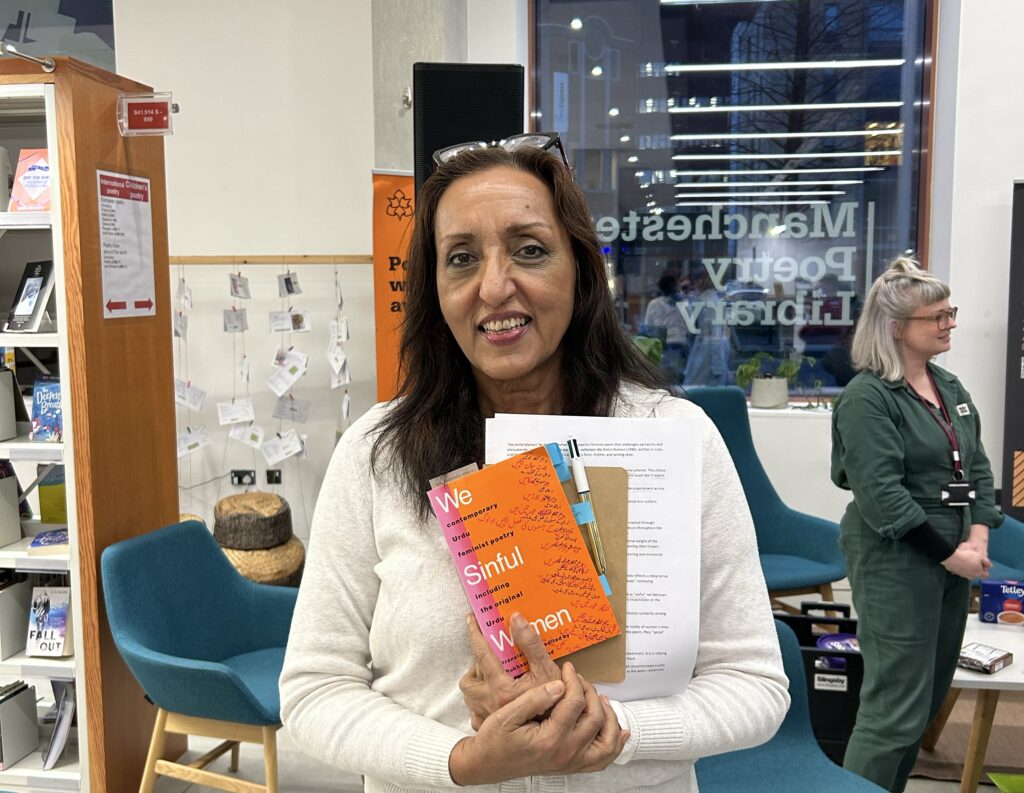Featured image: Megan Hall
A workshop inspired by the feminist Urdu poetry collection We Sinful Women brought together writers and poetry enthusiasts to explore themes of rebellion, sensuality and activism as part of the 16 Days of Activism Against Gender-Based Violence Festival.
Led by poet, scriptwriter and senior lecturer Anjum Malik, the event delved into the work of Kishwar Naheed, whose groundbreaking poetry, translated and edited by Rukhsana Ahmed, has become emblematic of feminist resistance since the 1980s.
The workshop featured readings of Naheed’s poems in both Urdu and English, highlighting their rhythmic power and bold messages. Malik began with Naheed’s title piece ‘We Sinful Women’, a poem highlighting women who do not ‘bow our heads’ or ‘sell our lives’, emphasising the idea of women being loud, rebellious and free.
Participants were invited to engage with the text through group discussions, annotations, and their own creative writing. Malik’s own poetry was also shared, exploring the taboo subject of female desire. Lines such as “this delicious attraction” and “lips upon lips” prompted discussions about empowerment and how reclaiming female sexuality can be an act of resistance.
Upon discussion on the “taboo” and “sinful” notion of female sexuality, Malik discussed how men and women alike have scorned her during readings of her poetry. This underscored the broader societal challenges faced by women who defy traditional roles and the role poetry and performance can play in activism, protest and resistance.
The group then took part in a collaborative exercise, creating a “wordbank” of striking phrases featured in the poetry shared which they could then use in their own creative writing. This compelling wordbank was filled with terms such as “delight in danger”, “secret integrity”, “transitivity” and more.
Bringing the group back together, participants took turns to share their own creative pieces and discuss their personal feelings towards female oppression. This meaningful pursuit instigated discussions of generational trauma, immigration and its hardships, cultures of secrecy and isolation in Asian families, complex mother-daughter relationships and more.
The workshop formed part of the global 16 Days of Activism campaign, which highlights the fight against gender-based violence through a variety of creative events, readings and critical discussions.
The 16 Days of Activism Against Gender-Based Violence Festival runs from 25th November to 10th December, 2024. For more information and tickets, visit mmu.ac.uk/news-and-events.






Leave a reply